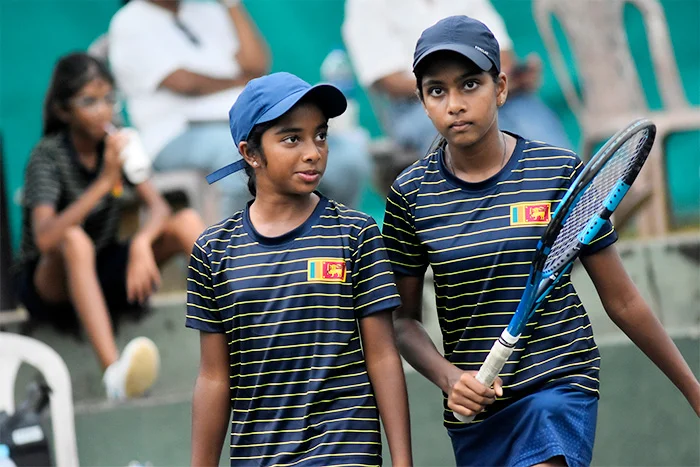Job Offers
Within a day or two of our arrival in Sri Lanka, I received a telephone call from Mr. S.B. Herat, Minister of Food and Cooperatives. He asked me to come and see him. I had neither known nor met Mr. Herat before. But I knew him by sight. When I saw him at the Campbell Place residence, where he stayed with his brother, after asking a few questions, he invited me to become the Secretary to his Ministry. Mr. K.B. Dissanayke of whom I had written about in a previous chapter, was retiring from service. I inquired from Mr. Herat as to whether my present Minister Mr. D.B. Wijetunge was aware that he was going to make this offer to me.
He said “No”, but he would be speaking to him. I told him I was sorry, but if my present Minister had not been informed, it was not possible for me to continue with this conversation. This was the tradition we were brought up in. One did not discuss a matter like this behind the back of one’s Minister. In fact, I remember the instance in the 1960’s when Mr. D.G. Dayaratne, a senior civil servant who was then functioning as the Port Commissioner when called by the Prime Minister Mrs. Bandaranaike and offered the post of Secretary to the Cabinet declined to discuss the issue, because she had not informed his Minister Mr. Michael Siriwardena. Mr. Dayaratne was later appointed, after the formalities had been concluded.
In my case, Mr. Herat was apologetic and said he would not discuss the matter further, but only wished to know whether I would serve if there was general agreement. I said, “Yes” and that this was based on a principle I followed, of taking up whatever assignment the government of the day wished me to undertake. Mr. Herat appreciated this, and we parted. As I was leaving he said “Please don’t mention this conversation to anybody. I will be clearing matters with your Minister and the Prime Minister.” (Mr. Jayewardene was not President yet.)
I promised not to. Matters rested at this for two days. On the morning of the third day which was a holiday, where I had decided to go to the station later than usual, the telephone at home rang at about 9.30 a.m. The Minister of Lands and Irrigation Mr. Gamini Dissanayake was on the line. He said “Dharmasiri, what are you wasting your time at SLBC for? We are forming a new Ministry of Mahaweli Development. Join me and become its Secretary.
” I was now in a serious quandary. I couldn’t tell him that the Food Minister had already spoken to me. I had promised to keep that conversation secret. I therefore rather lamely told Mr. Dissanayake that I knew nothing about irrigation systems or river diversions, and that it was best for him to look for someone with some experience in that area. I suggested Mr. Sivaganam, who was his Secretary in the Ministry of Lands. But Mr. Dissanayake was not to be so easily diverted. He merely said, “No, you will pick it up in three months. It’s going to be an enormous challenge and a great creative endeavour. Please come. I will speak to the Prime Minister.
” I reminded him that he should speak to my Minister first. He promised to do so. To my relief, he did not request me to keep this conversation confidential. I therefore, rang Mr. Herat and was fortunate to find him at home. I requested an immediate appointment. I said that the matter was urgent. He asked me to come. When I told him what happened, he was visibly upset. He thought that Mr. Dissanayake knew that he was interested in getting me. I told Mr. Herat that the last thing I wanted was to be in the middle of a tug of war between two Ministers and to please understand that the present situation was none of my seeking. He was very understanding. He agreed that I should not be misunderstood by anyone. Mr. Herat told me later that the matter was finally resolved in Cabinet. Both Ministers had argued for me.
What had finally clinched the issue had been my previous experience as Deputy Food Commissioner. The government was about to launch a major food policy reform, and they finally concluded that my presence in the Food Ministry was more important at the time. Thus it was, that one afternoon, when I had just finished seeing off the French Cultural Attache, who had come to present some recordings of French music, an envelope bearing the seal of President’s House was hand delivered to me. It contained a letter from the Secretary to the President intimating to me that the President was pleased to appoint me as Secretary to the Ministry of Food and Co-operatives “with immediate effect.” One could not however, abandon responsibilities involved in the only national broadcasting facility “with immediate effect.
” What I did “with immediate effect” was to call a series of emergency meetings with all the relevant parties including Heads of Divisions, Trade Unions, and other important persons. The news of my imminent departure spread rapidly, and large numbers of employees sought to see me to express their shock and regret. In between meetings, I had to find the time to speak to them, however briefly. I had enjoyed good relations with everyone and I felt somewhat sad at the prospect of this sudden departure.
I had to dissuade employees and trade unions going in delegation to see the Minister to protest at my going. Amongst the Unions, one of the most affected seemed to be the JSS, the same Union that protested at my appointment. Now they wanted to protest at my departure. This too, I successfully stopped. The SLFP Union was extremely unhappy. They had felt secure because of my presence. Now they felt quite insecure. They did not know what type of person would succeed me. My Directors of Divisions were very upset. One of the problems was that to everyone this was a sudden blow. They did not possess my knowledge of the background to all this and I was of course sworn to secrecy.
My meetings went on till near midnight. I myself had not anticipated that my new appointment would come so fast.
Therefore, there was much to discuss and decide on, particularly fairly urgent and important matters that would come up during the following few weeks. Then there were important matters to be pursued, both of a bilateral and international nature, consequent to the Non-Aligned Broadcasting conference. I had virtually just come back from that meeting. Responsibilities for follow up action had to be allocated. It turned out to be an exhausting day, and finally when I left the station for the last time another day had dawned.
***
CHAPTER VI
BACK TO FAMILIAR TERRITORY, SECRETARY TO
THE MINISTRY OF FOOD & CO-OPERATIVES 28TH
NOVEMBER 1977 17TH FEBRUARY 1989
Work of New Assignment Starts at Home
My last day at SLBC was the 24th of November 1977. There was then the weekend. Mr. P.M. Hassen, the Food Commissioner telephoned me and dropped in at home on Sunday morning, with a few of his senior officials. The reason for this team to see me on a Sunday, even before I had physically gone to the new Ministry was their anxiety about the vast changes contemplated by the new government on the whole area of food policy.
The ultimate aim was to abolish the rice-rationing scheme, which had been in existence for several decades. The officials were nervous about the impact of such a change, as well as the enormous difficulties involved in managing the reform and the transition. Mr. Hassen showed me reports and memoranda on which they had already been working. We discussed the issues and possible alternatives. We also discussed certain important aspects of implementation. Amongst other matters, we realized the importance of the role the government agents in the districts would have to play. I was therefore, quite upto date on developments when I walked into the Ministry next day, the 28th of November.
I am aware that many people look to some auspicious time to assume duties in a new job or to have themselves blessed through some religious function, such as the chanting of Seth Pirith. For some reason, these practices never obtained a hold on me. As to auspicious times, I tended to agree with the renowned Ayurvedic Physician of the Gampaha School, Dr. Senasekera of Kesbewa whom we used to consult occasionally. He was a fine gentleman.
One day, he told me to my great astonishment that he did not look for any auspicious times when he got married. I could not believe that a traditional Ayurvedic Physician who wore cloth and banian Would act like that, and I asked him whether what he said was true. He said “Yes”, and went on to say “Look, there are three occasions of major importance in a person’s life, birth, marriage and death.
Now, there are no auspicious times for birth and death. Then why on earth must you have an auspicious time for marriage?” The logic was irrefutable.
As to religious functions in public places, everytime someone gets appointed somewhere, my position is that religion is essentially a private matter, and that it was more important to observe it than to display it. I therefore in my career avoided both practices of seeking auspicious times and having public religious displays. I walked in at the due time and got down to work. Of course, in the case of some appointments such as Secretary to the Prime Minister and Chairman and Director-General of Broadcasting, there was no time for any such practices even if I wanted to follow them. In the first instance, I was yanked out of bed and appointed and in the second, I was sped into controlling a seriously deteriorating situation.
The Ministry and The Minister
The Ministry of Food and Co-operatives situated in Union Place, Colombo was a familiar place. Previously, in the 1960’s, I had spent almost four years as Deputy Food Commissioner in the same premises. I now occupied the room then occupied by the Permanent Secretary Baku Mahadeva. From this room, a connecting door led to the Minister’s room. The Minister himself was a genial personality, holding the Parliamentary seat of Hiriyala, in the North-Western Province. He never lost this seat, and it was easy to see why.
Educated at Wesley College, Colombo and coming from a professional family background, Mr. Herat was short, chubby and energetic. He had been a motorcycle-racing rider on the Katukurunda circuit, a hockey player and a lover of sports. Above all, he was honourable and humane. He was refreshingly free from pettiness, a condition common to many politicians, and possessed a mischievous sense of humour.
At times, his whole body shook with laughter. Sometimes, when he thought, the occasion demanded, he tried to get angry, but not very successfully. I remember one such occasion, when he was irritated with Mr. Hassen, the Food Commissioner, over some matter. One could see that lie was striving to get angry and give the Food Commissioner a telling off, but not with greatsuccess. His efforts to generate some visible degree of anger was so funny that the intended victim of his wrath, burst into laughter. “Why are you laughing?” asked the Minister. “Because you look so funny trying to get angry” replied the Food Commissioner, and both burst out laughing.
Such was the temperament of the Minister. It was small wonder that the people of Hiriyala liked him, and kept on re-electing him through every political swing. Mr. Herat’s work habits were also unique. He was always available to the people, and the people made a habit of thronging the premises of the Ministry. He did not see them singly. At any given time over fifty people were in his room, so that everybody heard everybody else’s request to the Minister and the ensuing dialogue. graduating sometime to a public discussion, with the Minister himself referring the matter to the assembled multitude, by asking them for instance, “Do you think this is a fair request?” However, with all this, he was also available to his officers.
Sometimes. I have had to wade through the crowd in order to discuss some urgent matters with him. On such occasions, much to my embarrassment, he used to clear the whole room the moment he saw me. He used to announce, “My Secretary is coming to see me on important official matters. Please wait outside, until he finishes.” I had told him several times, that it was not necessary to clear the room, each time I come in, and that I Would tell him if I had to discuss something confidential which would make this necessary.
But he persisted with the practice, which later I was given to understand was due to his respect for the Secretary. This situation made me reluctant to lightly walk into his room when there was a crowd. I walked in only if a matter was very urgent. Other matters, I noted down and kept for discussion later when the crowd had thinned, or sometimes for the following day.
(Excerpted from In the Pursuit of Governance, autobiography of MDD Pieris)
(Continued from last week)
from The Island https://ift.tt/zP8qJN0







